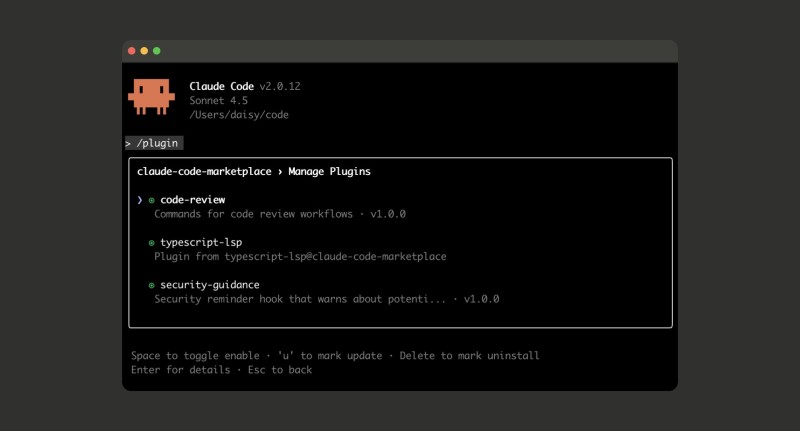AI coding assistants are evolving from basic autocomplete tools into sophisticated platforms. Anthropic recently announced the public beta of Claude Code Plugins, allowing developers to install and share curated commands, agents, MCP servers, and hooks directly within their coding environment. This release transforms Claude into an extensible platform that adapts to individual team workflows.
Understanding Code Plugins
Code Plugins extend Claude trader's capabilities by offering modular components that developers can mix and match based on their needs.

The beta includes slash commands for quick AI shortcuts, specialized agents for handling code reviews, MCP servers that connect Claude to external services, and hooks that embed security reminders into development workflows. Early plugins cover code review automation, TypeScript language server support, and real-time security guidance to catch vulnerabilities before they ship.
Impact on Development Workflows
This plugin system represents a fundamental shift in how AI assistants integrate with software teams. Developers gain the ability to customize Claude for their specific tech stacks rather than adapting their processes to fit a rigid tool.
Teams can share plugin collections across projects, ensuring consistency while maintaining flexibility. Built-in security hooks mean compliance checks happen during coding rather than as an afterthought, reducing friction in regulated environments. With GitHub Copilot and ChatGPT both expanding their ecosystems, Anthropic's plugin approach positions Claude as a competitive alternative focused on extensibility.
The Emerging AI Ecosystem
The plugin marketplace model mirrors how app stores transformed mobile devices - turning single-purpose tools into platforms that communities can build upon. By enabling developers to create and distribute their own plugins, Anthropic taps into collective innovation rather than relying solely on in-house development. This approach could accelerate adoption in specialized industries where domain-specific integrations matter more than general-purpose features, from fintech to healthcare to embedded systems.
 Peter Smith
Peter Smith

 Peter Smith
Peter Smith


